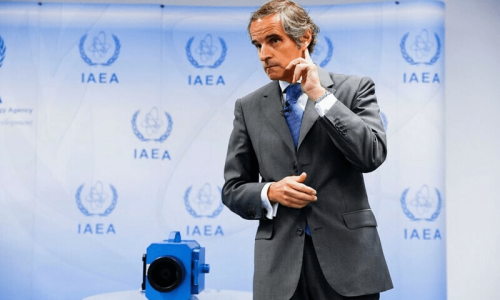RIYADH, Oct 25: Gulf Arab finance ministers and central bank governors held an emergency meeting on Saturday to hammer out a coordinated response to the global financial crisis that threatens to brake their region’s six-year economic boom.
Gulf Cooperation Council (GCC) policymakers were discussing new steps to shore up confidence in their banking sectors and stock markets, while reviewing regional investment plans, as global turmoil spreads into the oil-exporting region.
The retreat of the U.S. and European economy will have a negative affect on the balance of payments in GCC countries, read an agenda for the meeting, taking place in the Saudi capital, Riyadh.
This means implicitly a retreat in economic activity concerning exports and some service sectors,” it said.
Saudi Arabia, the United Arab Emirates and four other Gulf states have thus far adopted separate policy responses to ease the pressures of the global liquidity crunch on their banking sectors.
Looking to defrost interbank lending and boost confidence in their stock markets, Gulf central banks and governments have guaranteed bank deposits, eased lending restrictions, set up emergency funding facilities and invested money in ailing stocks.
The GCC also includes Qatar, Kuwait, Bahrain and Oman.
At Saturday’s meeting, policymakers would discuss strengthening the role of government in the financial sector, according to the meeting’s agenda, which did not give details.
Gulf states would also “reassess” their foreign investment policies, discuss ways to ensure the stability of the global oil market and how Gulf states could encourage intra-regional investments, the agenda said.
Al-Arabiya television earlier reported that Gulf policymakers would discuss directing more government funds into stocks and bank accounts to bolster confidence. It did not give a source.
The meeting will discuss the necessary coordination and cooperation mechanisms to protect GCC economies from the repercussions of the global financial crisis, GCC Secretary General Abdul-Rahman al-Attiyah was quoted as saying by the daily Asharq al-Awsat on Saturday.
The global turmoil has hit the Gulf region after six years of high oil prices allowed state and private investors to funnel billions of dollars into industry and infrastructure projects.
Banks are now struggling to finance these projects, leading economists and policymakers to expect project delays and cancellations.
Regional stock markets are also tracking sharp declines around the world. Saudi Arabia’s bourse plunged more than 9 per cent on Saturday, having dropped more than 44 per cent this year.
But Gulf states preparing for monetary union, including a single currency, are unlikely to take any major decisions on how to work together to face the worst financial crisis since the Great Depression, a senior GCC official said on Saturday.
Any decisions would have to be approved by Gulf leaders, he said.
The only thing GCC finance ministers can do as per the prerogatives that they have is to set up some sort of committee that will try to come up with joint mechanisms to deal with the crisis, said the official, who declined to be identified.—Reuters












































Dear visitor, the comments section is undergoing an overhaul and will return soon.